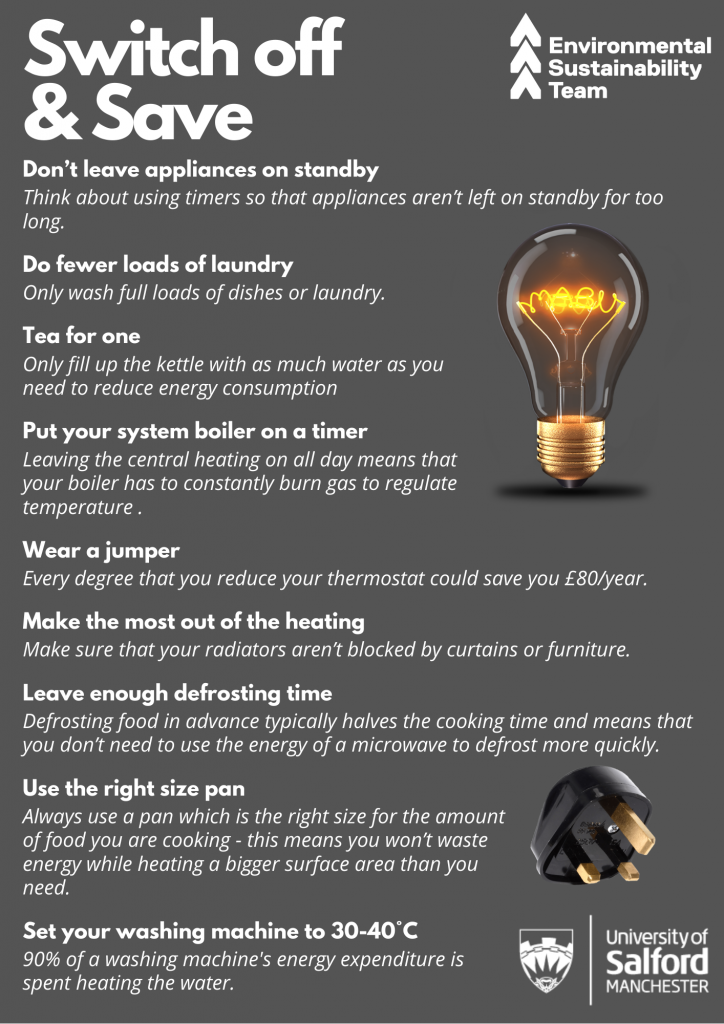Emily Shipley, Environmental Communications & Engagement Assistant.
Earth Hour is just one hour, annually, when the world can unite in its fight against climate change.
The WWF have been running Earth Hour since its first lights-out event in Sydney, 2007. Since then, it has become the largest event of its kind, with millions of people taking part in over 180 countries and territories. All that you need to do to take part is simply switch off your non-essential lights for one hour between 8:30-9:30pm on Saturday 28 March, it’s a small action that has a much larger impact when so many people combine their efforts. Not only does it have the obvious environmental benefits that come with reduced energy usage, it is also used as a tool to spark conversation; the more individuals take part, the more it will be taken seriously.

Of course, this year we will be celebrating Earth Hour from the comfort of our own homes, and it is a great opportunity to take some time away from social media and technology. You could use it as an opportunity for a candlelit dinner, play some board games or even have a dance!
You can find a list of ways that you can enjoy your Earth Hour, along with ideas about how to keep kids entertained here: https://latest.earthhour.org/earthhour-at-home
If you think of any more fun and interactive activities to do during this hour then please let us know, we’d love to hear from you!
Message us on-
Facebook Messenger: @SustainabilityUoS
Instagram: @Uos_Sustain
Twitter: @Uos_Sustain
In keeping with the theme of saving energy, check out some energy savings tips below:
- Don’t leave appliances on standby
Think about using timers so that appliances aren’t left on standby for too long.
- Do fewer loads of laundry
Only wash full loads of dishes or laundry.
- Tea for one
Only fill up the kettle with as much water as you need to reduce energy consumption
- Put your system boiler on a timer
Leaving the central heating on all day means that your boiler has to constantly burn gas to keep the temperature of your house at the required level that you have set.
- Wear a jumper
Every degree that you reduce your thermostat could save you £80-£85 a year
- Make the most out of the heating
Make sure that your radiators aren’t blocked by curtains or furniture-
- Leave enough defrosting time
Defrost frozen food in the fridge overnight or while you’re at work. Defrosting food in advance typically halves the cooking time and means that you don’t need to use the energy of a microwave to defrost more quickly.
- Use the right size pan
Always use a pan which is the right size for the amount of food you are cooking – this means you won’t waste energy while heating a bigger surface area than you need.
- Set your washing machine to 30-40°C
90% of a washing machine’s energy expenditure is spent heating the water, so if you wash your clothes at 30-40°C you’re saving a significant amount of money.
- Listen to music in the shower
Try and time your showers for 5 minutes- this can be done by setting a timer on your phone or finding a combination of songs that last for 5 minutes. This will reduce the amount of hot water you use!
- Replace old lightbulbs with LEDs
They use up to 25% less energy and can last 12 times longer
- Look for products that have an A+++ or A++ rating
These are the most energy efficient products. Under this system each + sign is taken to be equivalent to an energy efficiency of 10%.
- Get a draught excluder
Getting a draught excluder for your front door or internal doors can reduce the amount of heat escaping to the outside or from one room to the next,
- Buy a more efficient shower head
You can save you as much as £18 per person a year on energy bills, plus an additional amount if you have a water meter.
